The Story of One Woman’s Fight for a Better Society
Holocaust to Resistance: My Journey – A Review Essay
Suzanne Berliner Weiss
Roseway Publishers, 2019
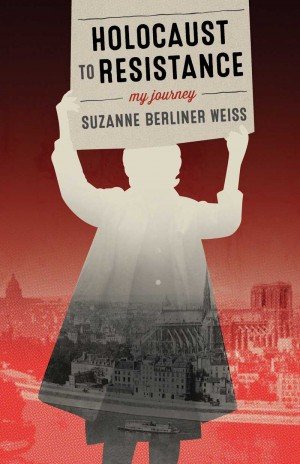
Interview with Suzanne Weiss Wednesday 1 March 2023
I first met Suzanne Weiss through organising the Socialist Labour Network’s Holocaust Memorial Day meeting on 27 January 2023. Suzanne had, prior to this, sent me a copy of her book, Holocaust to Resistance: My Journey. Below is a review article I have written.
Tony Greenstein
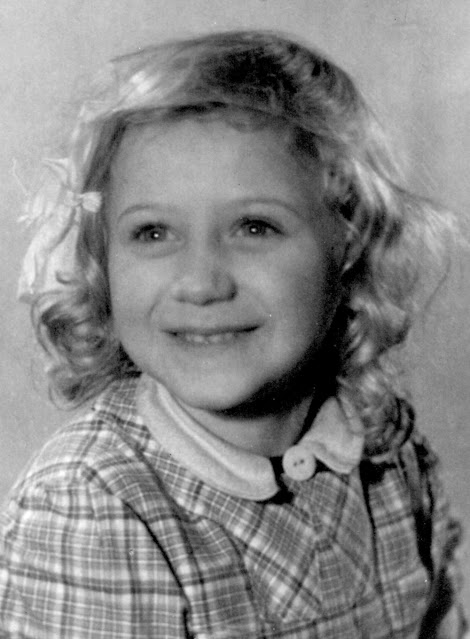
Suzanne Weiss has written one of the most moving books I’ve read. Suzanne is a living, walking symbol of the slogan Never Again for Anyone. The Nazi Holocaust– which devoured millions of lives, Jews, Gypsies, the Disabled, to say nothing of trade unionists, communists and socialists – did not spring out of nowhere.
The Holocaust wasn’t, as western propaganda pretends, an act of madness, ‘a pseudo-messianic ideology.[1] which saw the Jews as being the incarnation of the Devil.[2] Nazism was a product of imperialism, the belief that the West had a divine right to plunder, pillage, rape and murder those it colonised.
As Edwin Black wrote:
The Nazis’ extermination programme was carried out in the name of eugenics …. In France, Belgium, Sweden, England and elsewhere in Europe, cliques of eugenicists did their best to introduce eugenic principles into national life; they could always point to recent precedents established in the United States….
From the turn of the century, German eugenicists formed academic and personal relationships with the American eugenics establishment, in particular with Charles Davenport, the pioneering founder of the Eugenics Record Office on Long Island, New York, which was backed by the Harriman railway fortune. A number of other charitable American bodies generously funded German race biology with hundreds of thousands of dollars, even after the depression had taken hold.
Black described how Hitler proudly told his comrades how closely he followed American eugenic legislation:
Now that we know the laws of heredity’ he told a fellow Nazi, ‘it is possible to a large extent to prevent unhealthy and severely handicapped beings from coming into the world. I have studied with interest the laws of several American states concerning prevention of reproduction by people whose progeny would, in all probability, be of no value or be injurious to the racial stock
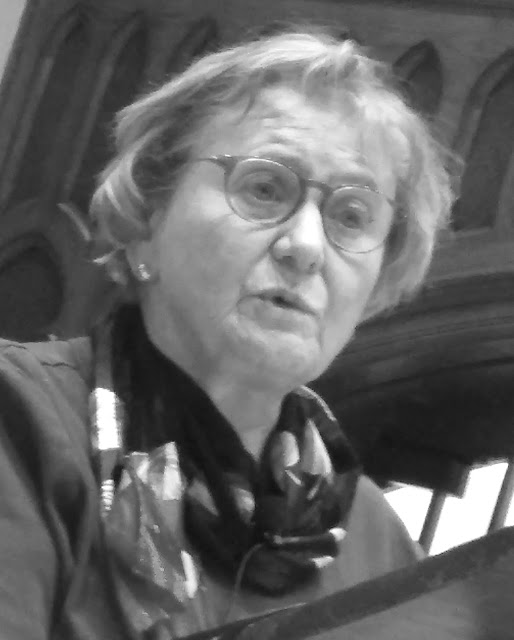
The Nazis were, above all, imperialists. Nazi economic and foreign policy was based on lebensraum, the conquest of ‘empty spaces’ in Eastern Europe. On 5 November 1937, Hitler addressed the German High Command emphasising that he intended to wage wars of plunder in Eastern Europe. The record of the conference was known as the ‘Hossbach Protocol’. The Incorporated Territories, which Germany later conquered in Poland, were to be cleared of Jews, Poles and Gypsies.
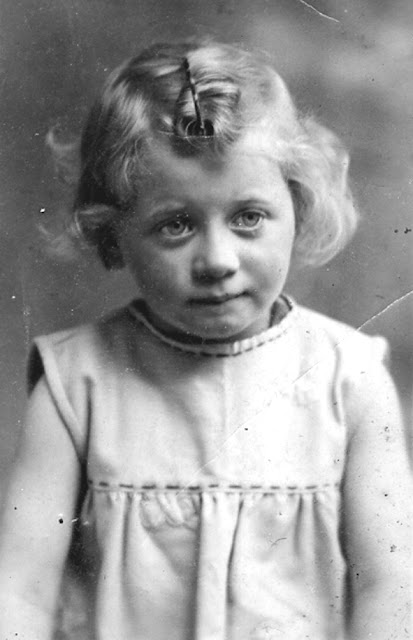
Suzanne Weiss was born of Jewish refugee parents in France in 1941. In 1943 the Jewish resistance dispersed thousands of Jewish children into the countryside, including Suzanne. She was looked after for the next two years by a French farm family in Auvergne province. Then, in 1945, her dying father, accompanied by a friend who purported to be her mother, came to the village and took her back to the Jewish community. For the next four years Suzanne was shunted from one orphanage to another before being adopted by a Jewish couple in America.
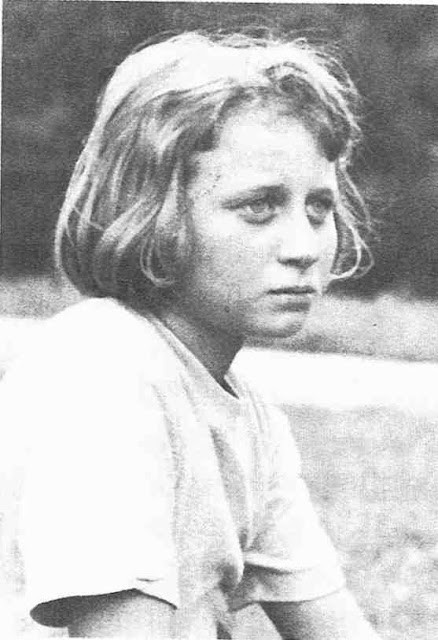
Suzanne had a difficult childhood growing up in the United States with two domineering adoptive parents, Frances and Louis Weiss. Louis insisted that the only role of a woman was to procreate. Although they were on the anti-McCarthyite left and supported the struggle of America’s Black population for liberation, Suzanne’s adoptive parents were aghast when Suzanne invited home a young Black man. They wanted him to come in the back door lest the neighbours see! An injunction that Suzanne ignored.
Yet when Suzanne asked Viola, a Black woman who cleaned the apartment, and cared for her, whether it was true that Africans cooked and ate white people, Suzanne was reproached for asking a Black person such a question. ‘Where did you get such an idea’ her mother asked her as if she had invented it. In fact, the young Suzanne was questioning the prevailing racist bias of American society.
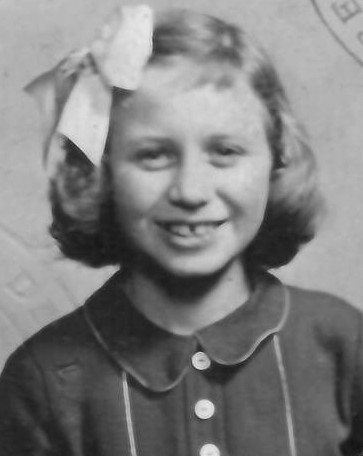
Reading this difficult personal story, which intertwines with her growing political awareness, I was shocked that her new parents could be so insensitive to a young orphan who had lost a mother in Auschwitz and a father to the fight against the Nazis. Frances even told her that she hadn’t been their first choice to adopt. ‘I wanted Nicole’ referring to a friend in the orphanage. They were bull-headed and determined that Suzanne would grow up in their own image. The first part of the book is about Suzanne’s determination to map out her own life.
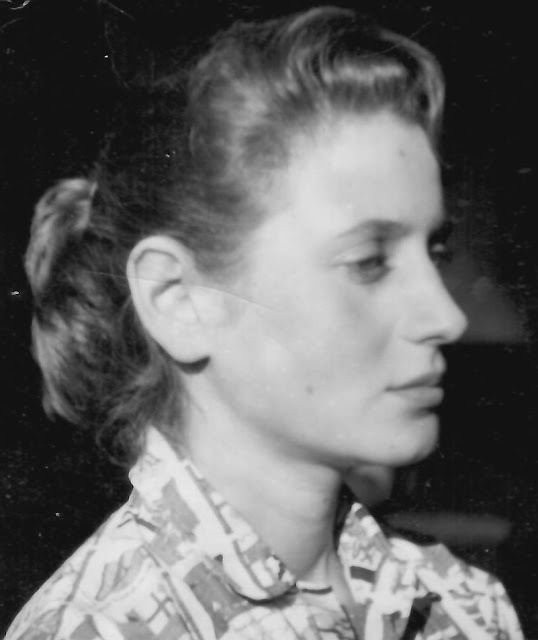
Pensive and conflicted, 1958
After one heated argument in which Suzanne ran to her room and slammed the door, Louis took that door off its hinges! Many similar incidents followed. Frances was ‘emotionally remote’ Suzanne recalls. Her new parents ‘didn’t understand that they had adopted a child with a tumultuous background whose personality had already been formed.’ They provided material necessities but not for her emotional needs.
A subtext running throughout the book is Suzanne’s search for information on who her birth parents were and what had happened to them. Her adoptive parents had various documents and photographs yet did not share them.
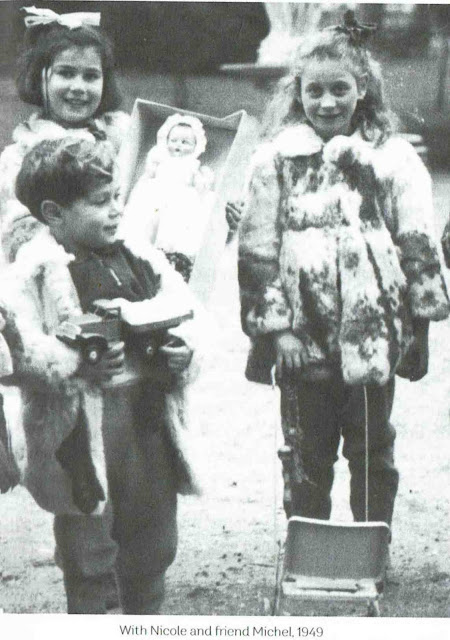
Suzanne tells a miraculous story of how a school friend introduced her to Nora, who turned out, amazingly, to be Suzanne’s birth mother’s sister. Nora’s spouse, Jake, turned out to be a notorious Jewish collaborator with the Nazis in their Polish home town of Piotrkow Trybunalski. From Nora Suzanne learnt that her mother had been an activist in the Bund, a Jewish anti-Zionist party that commanded majority support amongst Polish Jews.
When Suzanne revealed her discovery of Nora to her adoptive parents, they gracefully accepted it. But after a party in celebration of this addition to the family, her adoptive father launched into a tirade dictating Suzanne’s future: ‘the female role is to find a mate and to multiply.’ Angered, Suzanne fled from her home and sought refuge with a girlfriend. Suzanne’s adoptive parents reacted by having Suzanne arrested and incarcerated in a detention facility – as it happened, a Catholic girl’s residence for delinquents. As she was remanded into custody, Suzanne observed that Louis ‘had learned nothing from the McCarthy Witchhunt’.When the residence staff asked whether she was really Jewish, Suzanne replied coldly, ‘Hitler made me Jewish’. Today one might equally reply that Zionism has also made us Jewish.
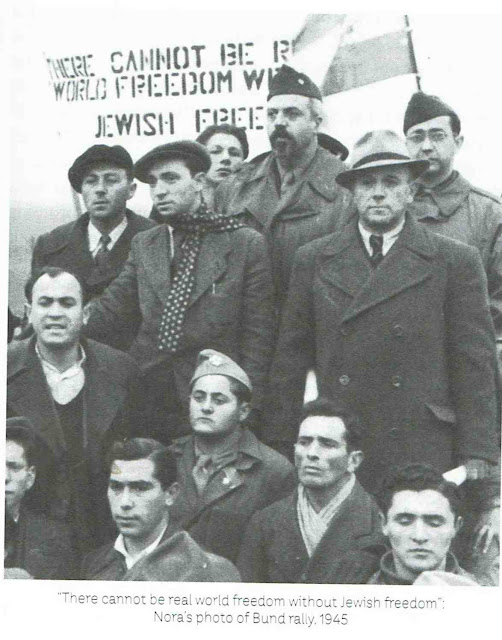
After her release, Suzanne’s problems did not ease. When she was given a recording by Gertrude Stein, the American lesbian poet and novelist, Suzanne’s paranoid adoptive father hired a private detective to follow her.
Suzanne and her adoptive mother moved to Los Angeles in an attempt to cut off the friendship with her New York friends. Suzanne paid for her own post office box in order that she could communicate with her friends safe from the prying eyes of her adoptive parents.
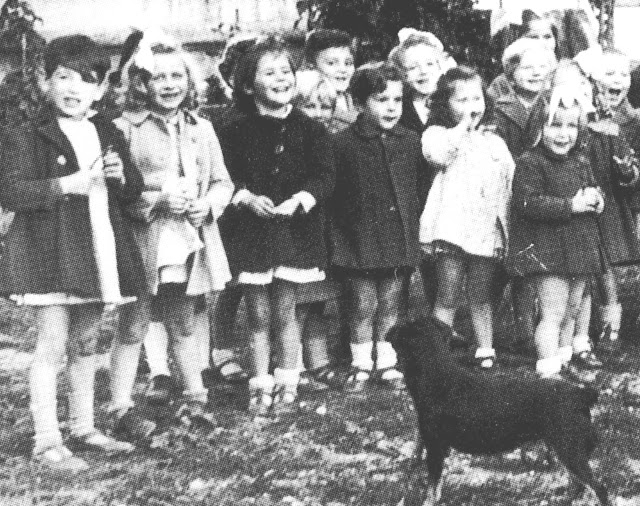
The American Socialist Workers Party
The second part of the book takes up Suzanne’s work in the American Socialist Workers Party (SWP), and her role in establishing its print shop. This was the time of the Cuban Revolution, the continuing struggle for Black rights, Women’s rights, and the campaign against the Vietnam War.
In 1960, the Holocaust was a hot topic because of the Eichmann trial in Jerusalem. When a friend asked Suzanne if she was a Zionist she responded
No, I’m Jewish. I didn’t see how Israel as a Jewish country could be the answer to the hatred of the Jews. Besides wouldn’t it be a convenient place to get rid of us all at once.
Suzanne concluded that ‘Never again’ was not only a Jewish slogan about Nazism but also applied to the whole of humanity.
In August 1959 as Suzanne left for a new life in San Francisco her adoptive mother lamented that they had had only had nine years together. Upon reflection Suzanne noted that
I rebelled against the insincerity, dishonesty and hypocrisy of these ‘progressives’. They who railed against McCarthyism, used his tactics.
In June 1960 Suzanne married and left with her husband for a honeymoon in revolutionary Cuba.
On their return, Suzanne joined in building the Fair Play for Cuba Committee, – dangerous work since exiled-Cubans were armed and threatening. Suzanne recalls how at one Fair Play for Cuba meeting a group of Cubans attacked the meeting. Fortunately, the stewards were prepared for them and fought back, ejecting them out into the street.. An exile fired a gun (at an undercover cop!). However, there followed harassment and surveillance by the FBI against the supporters of the Cuban revolution.
This whole period was one of struggle for Black liberation, the assassination of Kennedy and then Malcolm X, and the growth of the anti-Vietnam war movement.
When Suzanne succeeded in obtaining a small sum by way of holocaust reparations she was determined to give it away to those struggling to end apartheid in South Africa and the SWP. Her adoptive parents insisted that she should keep it herself, and rather than praising her selflessness, cut her out of their will (although in her old age her adoptive mother relented). Suzanne observed that it was ‘a hard blow to a fragile relationship.’
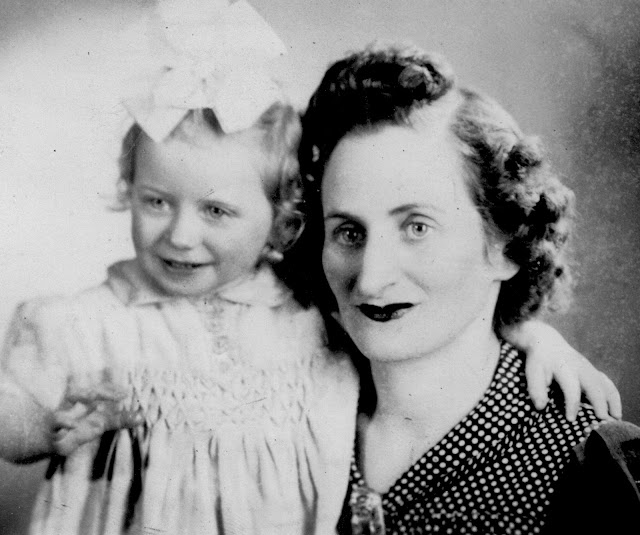
Another application for reparations brought not payment but a cache of new documents about Suzanne’s parents and what had happened to them. She learnt that her birth mother had arranged for her rescue by the Jewish resistance.
From civil rights campaigns to Vietnam anti-war campaigns, Suzanne was immersed in solidarity action. At a time when many Communists and socialists were calling merely for negotiations to end the Vietnam War, Suzanne was explicit in the demand for American troops out. She refused to accept the legitimacy of the American presence.
Throughout her narrative Suzanne skilfully interweaves the personal with the political. She describes the sexism of her male comrades. When Suzanne narrowly escaped being raped in New York, her comrades joked about how women really enjoyed being raped.
The pervading sexism in both the SWP and American society as a whole, is a constant theme. It was a sexism that not only put women down but also had the effect of inhibiting their participation in the movement. Although the SWP was transformed by the women’s liberation movement, Suzanne’s own immersion in the print shop, cut her off from the living movement. It is a problem that afflicts all Marxist groups and reproduces itself as sectarian isolation.
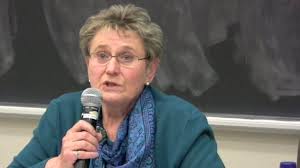
When the SWP decided that its members should become factory workers, Suzanne took on a number of manual jobs in factories and the oil industry. The jobs were dirty and at times dangerous. She sought to prove that women had equal rights to those of men.
Her description of the American working class, which in private industry was barely unionised, shows how the effects of both racism and sexism weakened the class. Her friends and companions were Black women. In one workplace in the South the clerks objected to her eating her lunch with Black workers. ‘You’re a Yankee and we’re segregationists’ they proudly boasted, along with references to Hitler as a ‘great man’. They preferred a segregated workplace even though these divisions played into the hands of the bosses. This backwardness of workers is rarely addressed by the left, other than as an example of ‘false consciousness’.
In 1979 Suzanne got a job with an oil company and encountered the hatred of the white workers for Black workers: ‘my idealised concept of union solidarity was shattered by reality.’ In 1981 the air traffic controllers union PATCO struck for increased pay and better working conditions. President Reagan fired them, over 11,000 strikers. ‘The total lack of a union response sealed Reagan’s victory,’ Suzanne commented.
Yet the party leaders continued to stress, like a hammer knocking on our brain: ‘The workers are moving to centre stage of the class struggle.’ How’s that? Get off cloud nine and face reality I thought’.
And here we see how the far-left, addicted to its template of working- class revolution never understands why there is no revolution. Instead, the different groups retreat into the theory of inevitability and ignore difficult theoretical questions such as whether or not the western working class is indeed the gravedigger of capitalism or whether it has been compromised by racism and imperialism.
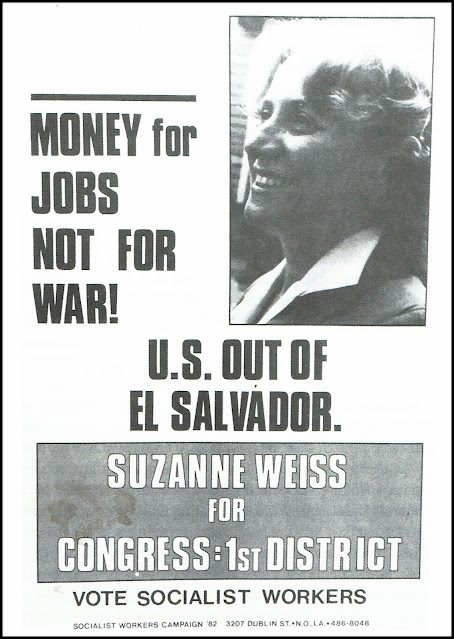
In 1982, Suzanne stood as a socialist candidate for Congress, winning positive nominal support of fellow workers – but no co-workers actually came to her rally. ‘The party remained an alien milieu for my workmates. Our socialist message was not in harmony with their lives and concerns.’
It was this divorce from reality that led Suzanne to lose her enthusiasm for the party.
Perhaps the most gratifying episode in the book is Suzanne’s initiative in finding a new partner. Having settled on John Riddell she asked him to dinner! Like all fairy tales it ended up in a happy marriage with someone Suzanne could trust and cherish.
Suzanne played a significant role in the SWP for 33 years, during which time she was entrusted with organizing the care of James P. Cannon, a founder and prominent leader of the SWP.
In the years after Cannon’s death, Suzanne records, the SWP increased its sectarian and undemocratic path excluding all criticism. What had been a promising socialist group became a sect under the control of a leadership which brooked no dissent.
It was a leadership which refused to allow reality into its political vision. Suzanne had been working alongside the American proletariat, and had won their respect, but it was clear that they would not get involved in the SWP. The party’s experiment of sending their cadre into factories was not working.
Although she does not mention it, this experiment was not unique. Very similar things happened with the PATCO Reagan British SWP and Trotskyist groups like the International Marxist Group (IMG) who also sent their middle-class cadre into factories in the hope that they would provide the spark that would light the fires of working-class revolution.
What neither the SWP, the IMG or other tiny groups of the Marxist left understood was that the working class in the West was not automatically a revolutionary class. They had been corrupted by the crumbs from the imperialist table, hence why nationalism and racism were so endemic amongst workers in the West. They had supped with the devil but without a long spoon!
The final part of the book recounts Suzanne’s return to France with her partner, John. She had sworn never to return to the land where she had experienced the terror of Nazism but, after a time John, persuaded her. This is perhaps the most optimistic part of the book where Suzanne learnt of the fight of the French resistance and how, in the area where she had been hidden, Auvergne, 5,000 Jewish children had been hidden. This was as many as the total saved during the war by the illegal immigration (Aliya Beit) to Palestine, the only form of rescue acceptable to Zionism.
In France, Suzanne met up with Michel Berman, who had first looked after her when her father retrieved her from Auvergne. She learned of the activities of the UJRE (Union of Jews for Resistance and Mutual Aid) which had protected her from the Nazi killers.
Suzanne visited her father’s grave and found it marked with a cross. ‘No justice even in death’. She also found the Nazi record of her own mother’s journey to Auschwitz and learnt of the complicity of the French Vichy police in the arrest of Jews. Although the Vichy regime shielded Jews born in France, it offered up the refugee Jews to the Nazis.
This is the answer to Zionism’s belief that Jews can only be safe living in their own state and replicating the racism that they had experienced. It was not Zionism that saved Suzanne or the thousands of Jewish children in France, Belgium and other countries but the solidarity of ordinary workers and peasants and their resistance to Nazism. At the same time the Zionists staffed the Judenrat (Jewish Councils) which, almost without fail, collaborated with the Nazis over and above their duty.
As Suzanne cut her last links with the SWP, she judged that its politics ‘had become more and more contrived and brought no understanding, no clarification, no lessons learned.’ She moved with John to Toronto to begin a new life. Obtaining a degree at university, she became a care counsellor for the elderly:
Suzanne wondered ‘whether elderly Holocaust survivors differed from survivors of other traumas, tragedies or genocides such as Palestinian families’. She pondered how Palestinian survivors of the Naqba were subjected to daily terror, the destruction of their families and the loss of their homes, possessions and homeland.
By the year 2001 the entire older generation in Suzanne’s family had died:. ‘I look back with regret on the older generation with all its passionate courage and hurtful short-sightedness.’
There is a chapter on Nora’s husband Jake’s collaboration with the Nazis, which is an issue I have wrestled with in my book Zionism During the Holocaust. Suzanne quotes Auschwitz survivor Primo Levi who distinguished between collaboration under coercion from voluntary collaboration. I had independently reached the same conclusions. It is something that Lenni Brenner in his 51 Documents – Nazi-Zionist Collaboration fails to make. As Suzanne observed: ‘Responsibility for the personal tragedy of his (Jake’s) wartime role lies with the Nazis, who made thuggery and betrayal the road to survival.’
The point about Zionist collaboration with the Nazis was that it was voluntary. No one forced the Zionists to offer a trade agreement Ha’avara to the Nazis. No one forced the German Zionist Federation to write a letter to Hitler on 21 June 1933 pledging co-operation. No one forced Rudolf Kasztner to testify at Nuremberg on behalf of the Jewish Agency in support of Hermann Krumey, the butcher of the children of Lidice and Hungarian, Austrian and Polish Jewry. This was the crime of Zionism. Its collaboration was voluntary.
In sum, Cuba, Venezuela, Bolivia Solidarity, and indigenous sovereignty were all causes Suzanne embraced in recent decades. In the process, she says, ‘I broke from long held prejudices against left-wing activists who were not Marxists.’ Climate change pointed to new directions. Yet Suzanne regretted the absence of a socialist party which could have integrated all these struggles if only it had not been consumed by sectarian dogmas.
On receiving a request in 2005 to sign a letter protesting at the visit of Israeli war criminal Ariel Sharon, Suzanne signed it with the words ‘holocaust survivor’. She had come out. As she observed:
Hitler’s Holocaust is unique in history. Nothing is similar to it. Still, many Israeli techniques – the expulsions, the ghetto isolation, the pervasive checkpoints – have a disquieting resemblance to Nazi methods.
Perhaps here we disagree. Every genocide is unique but was the Holocaust any different from the extermination of Native Americans by Andrew Jackson or the Armenian genocide, at which German army officers were present who would later carry out the extermination of Jews? Was not the extermination of Africans at Namibia’s Shark island concentration camp the precursor of the Holocaust? Its commandant Dr Eugene Fischer later training Nazi doctors such as Joseph Mengele.
To those who say comparisons between Israel and Nazi Germany are anti-Semitic my reply is that we should compare more not less. In so far as Israel uses the Nazi holocaust as its justification we are under a duty to point out the similarities.
I was pleased to discover that Suzanne was involved in campaigns against Israeli companies Ahava and Sodastream since I too was heavily involved in these campaigns in Britain. As Suzanne says ‘my allegiance to the Palestinian freedom struggle contributes to my affirmation of my Jewishness.’
In the chapters on her visits to Auvergne, Suzanne remarks on how, on at least five occasions, German soldiers had deliberately ignored the presence of Jewish children. The community of Chambon was overflowing with children, a quarter of whom were Jewish, as well as German soldiers. This is an important corrective to the idea that all Germans were anti-Semites. Hitler came to power not because of anti-Semitism but despite it.
The German army was, to be sure, guilty of many atrocities not least its collaboration with the Einsastzgruppen. But it also protested in Poland at the attacks by the Nazi SS on Jews.
In the penultimate chapter Suzanne describes her interviews in Paris with Le Figaro. ‘Whilst thanking the people who courageously hid the Jews and other refugees ‘in plain sight’, I also drew the parallel with the fate of refugees today.’ It is this which Zionism refuses to do since it too pursues the chimera of racial purity.
Suzanne summed up her defence of Palestinian freedom:
My whole being has been intertwined in this irrepressible striving for social justice. My mother and father were Jewish socialists, looking for solutions to hatred and injustice. They were opposed to the Zionist settlement of Palestine. I stand with them and oppose the colonialism that has displaced and oppressed the indigenous Palestinians.
It is not surprising that Suzanne has left behind her, at the age of 82, the sectarianism of far-left groups but continues to embrace the struggle of the Palestinians while also persisting in her commitment to the goal of socialism. If the first part of her life saw the end of Apartheid in South Africa it is to be hoped that we will also soon see the end of Apartheid in Palestine.
This is a book that I cannot recommend highly enough.Tony Greenstein
A very moving story Tony, thank you for sharing it